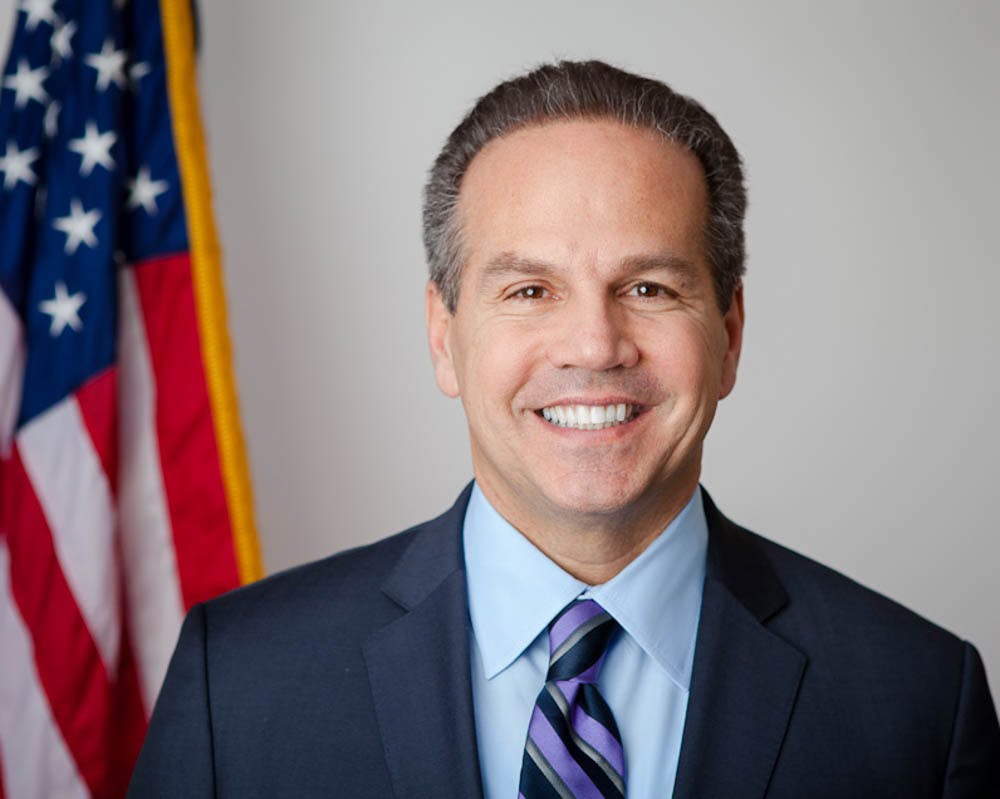U.S. Congressman David Cicilline ’83, D-R.I., has been named a senior fellow at the Watson Institute for International and Public Affairs and will teach a course for the Masters of Public Affairs program beginning in April, the University announced in late January.
The six-week, for-credit course, titled MPA 2606: “Public Policy and Politics in Partisan Times,” will explore the causes and effects of partisan polarization on the creation and implementation of U.S. policy. Cicilline hopes that his first-hand experience on Capitol Hill will help facilitate discussions on possible solutions to polarization in Congress.
“Public Policy and Politics in Partisan Times” will have a capped enrollment of twelve people, which “fits the spirit of these MPA courses … intended to have a personable education experience,” said Edward Steinfeld P’20, director of the Watson Institute. Students were selected for the class through an application process.
“This is great for the Watson Institute,” Steinfeld said. “Given what I’ve seen (Cicilline) do in our community, given how I’ve seen him interact with students in non-class settings (and) public events, I’m really excited about having him teach for us.”
“I thought it would be a great opportunity for students to have the benefit of someone who’s currently in Congress observing what’s happening and being able to share those experiences with young people,” Cicilline said.
He designed the curriculum and selected the weekly readings, which include historical and contemporary selections and Congressional Research Service Reports. He wants students to “formulate and share” their own ideas on how to resolve the polarization of politics, and their work will culminate with a final 20-page paper.
Cicilline said he hopes to “ignite the interests of some students to think about careers in government, whether it be working in Washington or running for office.”
“The polarization of politics has resulted in people sometimes disengaging completely,” he said. “They’ve sort of given up on thinking about government as a useful place to devote energy because they don’t think it’s responsive to the challenges in their own lives. That’s very dangerous for our democracy.”
Cicilline has represented Rhode Island’s First Congressional District on Capitol Hill since 2011. He serves as the chair of the Democratic Policy and Communications Committee, co-chair of the Congressional LGBT Equality Caucus and vice-chair of the Congressional Progressive Caucus. Prior to becoming a U.S. Representative, he served as mayor of Providence from 2003 to 2011 and as a four-term member in the R.I. House of Representatives.
In addition, Cicilline brings teaching experience to the Watson Institute, having previously taught “Advanced Problems in Constitutional Law” and “Advanced Trial Practice” at Roger Williams University School of Law.
Paul Marshall GS, a student registered for Cicilline’s class and a native Rhode Islander, hopes to gain a deeper understanding of climate policy from the MPA program. He chose to take Cicilline’s class because the Congressman has supported climate change initiatives at the state and federal level. Marshall said that he wants to examine “the intersection of policy and the environment … how interest groups and lobbyists and media intersect with climate change.”
Nate Blouin GS, another student in the MPA program, is enrolled in Cicilline’s class and participated in a study group last semester led by Tom Perez ’83 P ’18, chair of the Democratic National Committee and a Watson senior fellow. He says that while Perez was “very on-message the whole time” and spoke “for a party,” he believes that members of Congress “speak more for themselves.” He looks forward to getting more “personal insight” about politics from Cicilline.
The polarization of politics “is a complicated question with a lot of contributing causes,” Cicilline said. “But the good news is I think there are a lot of ways we can fix it.”





